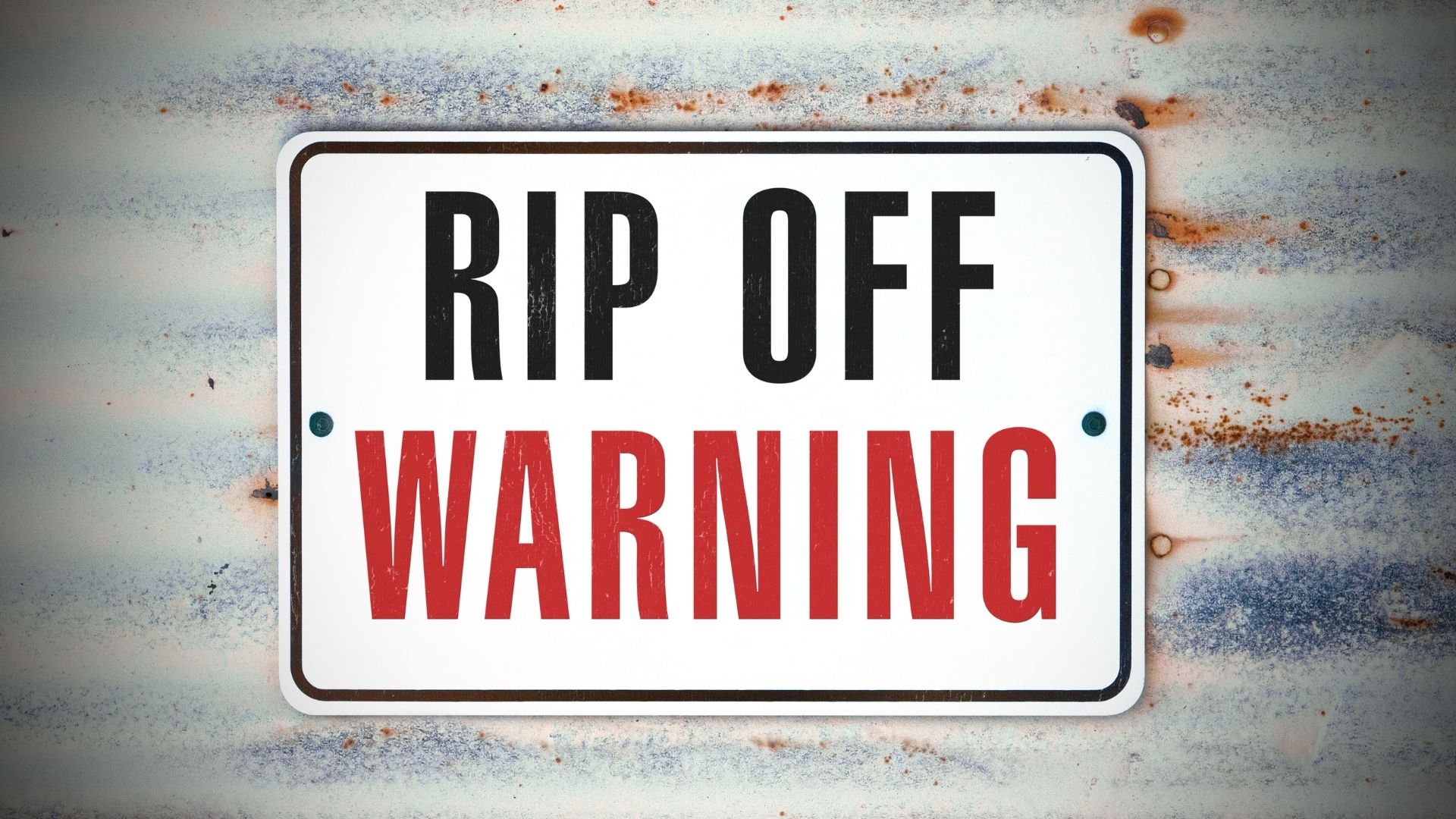Losing a loved one is, without a doubt, a painful experience. When a loved one passes on, it’s of great importance to settle his/her estate. Unfortunately, this can take a considerable toll on most of us, especially if you don’t know what to do. It can be even more difficult if your loved own did not have a trust, and you need to go through probate.
If you are one of the many confused about probate, you are not alone. We have written several articles about probate to help guide you through this frustrating process.
If you are looking for more general information about the probate process: check out our article “What is Probate and Why Avoid It?”
If you are currently in the process of probating a loved one’s will, you may be interested in our article called “How to Probate a Will in 11 Detailed Steps.”
This article will lead you through the process of obtaining a “probate bond.”
Also known as a fiduciary bond, estate bond, or executor bond, a probate bond is essentially a financial guarantee paid in court by the personal representative of an estate (or by a bonding company). It serves as an assurance to the court and the beneficiaries that the personal representative will fulfill his/her duties faithfully, and will fairly distribute a decedent’s estate according to state law and terms of the will/trust.
Let’s dive more in-depth and explore all the questions related to probate bonds.
What is a Probate Bond?
The probate process can be a lengthy legal process that typically involves carrying out the following duties.
- Providing notice to heirs, beneficiaries, and creditors
- Finding the will and opening an estate in a probate court
- Working with the court to validate a will or intestacy
- Determining the value of the decedent’s estate
- Finding heirs and paying inheritance
- Paying debts and taxes
- Accounting for the distribution and expenditure of all assets
- Sending reports to the court and beneficiaries
But before carrying out these duties, many courts will require you, as the personal representative, to get a probate bond. This is a requirement in states that have adopted the Uniform Probate Code.[i]

A probate bond is also required by the California State Probate Code.[ii]
It’s principally a financial guarantee that you’ll faithfully and impartially, per state laws and terms of the will/trust, distribute the assets of the deceased person.
It is a failsafe.
If you, as the executor, fail to carry out your above-stated probate duties accordingly, then the affected persons (beneficiaries, creditors, heirs, etc.) can make a claim on the probate bond to recover their damages. The probate bond will be used to compensate or indemnify those affected and to cover the incurred financial losses.
For example, if you embezzle (steal) the estate funds, the beneficiaries can make a claim on the bond and get the money back. The Bond Company pays the beneficiaries and then comes after you for repayment.
The probate court sets the amount of the bond. Typically, the amount of the bond is equal to the value of the estate. But some courts have the discretion to adjust the amount of the bond up or down, depending on the circumstances.[iii]
What is the Process of Getting a Probate Bond?
The first step towards getting a probate bond is by finding a reputable surety bond company. The surety bond company will require you to complete an application, which is submitted to an underwriter for evaluation. Some of the documents that you may need to provide include:
- A copy of the court order appointing you executor, administrator, guardian, etc.
- Copy of the will/trust (if available)
- Court documents that reference the bond
- A list of the heirs or beneficiaries of the decedent’s assets
- Explanation of whether your appointment as an executor is special or temporary
The underwriting process is basically to assess the risk of bonding the executor and whether you, as the applicant, are competent to be bonded. Most of the underwriting decisions are based on your credit report or FICO score (more on that later). If the application is approved, the bond company will issue a bond. You will receive a hard copy of the bond, which you will need to copy and file with the probate court.
When Does the Probate Court Require a Bond?
Unless the will, or all the beneficiaries and heirs, waive the bond requirement, the court will require you to obtain a probate bond.
Additionally, even if the will or the beneficiaries waive the bond requirement, if any persons with at least a $5,000 interest in the estate ask the court to impose a bond, then a bond will be required.[iv]
Why Does the Probate Court Require a Bond?
A personal representative acts as a fiduciary for the heirs and beneficiaries. If you are a personal representative, executor, or trustee, you owe a fiduciary duty to the heirs and beneficiaries.
The probate court requires a probate bond to protect the beneficiaries, heirs, and creditors of the estate from intentional or negligent mistakes made by the personal representative.
Additionally, the probate court bond helps ensure that the personal representative moves quickly. Probate bonds can be expensive, and the premiums are paid annually (discussed below). So the longer the estate drags on, the more expensive it is to keep the probate bond in place.
In other words, you should carry your responsibilities as soon as possible to exonerate bonds. Make sure that you receive an exoneration certificate to show that the probate bond has been discharged by the courts and submit it to the surety bond company. This is to prevent the surety bond company from assuming that the probate bond is still active, thus continue charging you annual premiums.
How Much Does it Cost to Get a Probate Bond?
When the court imposes a $100,000 bond, it DOES NOT mean that you need to pay $100,000 to the court. Instead, you would pay the bond company a small premium, and they will issue a bond (which is like an insurance policy).
Known as premium, this cost will depend on many factors and will cost about 0.5% of the bond amount. For example, a $100,000 probate bond amount will have an annual probate bond premium of $500.
But the bond premium can be higher or lowers depending on a variety of factors including:
- The personal representative’s credit history
- The types of assets in the estate
- The total value of the estate
- The number of creditors and heirs of the estate
In most cases, many surety bond companies have a sliding scale that will make the premium cheaper if the probate bond amount gets larger than $250,000. To this end, it’s important to note that you shouldn’t be freaked out if the court imposes a huge bond amount. This is because you don’t have to pay the full amount of the bond, but a small percentage of it, which is essentially the annual premium that must be paid each year.
Let’s put it into perspective. If the probate bond is $500,000, you don’t need to pay this amount. Instead, the surety bond company will file this amount with the court and your only responsibility will be to pay an annual premium, which is 0.5% of $500,000 = $2,500 to the surety bond company.
Do I Need a Good Credit to Obtain a Probate Bond?
The simple answer to this question is, yes. The annual premium that you’ll be paying to the surety bond company will be calculated based on the executor’s credit score. While some other issues, such as ongoing debts, might be factored in, your credit score remains the primary determinant.
Just like the same way banks evaluate an individual’s credit score before giving them credit, the surety bond company will assess the possibility of you triggering a claim. This makes a lot of sense given that they endorse you by underwriting the bond, and they’ll remain financially responsible should anything go wrong.
That being said, it might not be possible for you to obtain a probate bond if you have bad credit. While there might be individual exceptions if you have credit issues, surety bond companies are always very strict and might refuse your probate bond application if you have a low credit score.
Can the Bond Requirement be Waived?
Not every executor will need a probate bond. For instance, an executor won’t require a probate bond if the will specifically waives the requirement. But if there’s no will and the court handles the distribution of assets, or if the will doesn’t specify that the probate bond is waived, then the executor will most likely require a probate bond.
As discussed above, the bond can also be waived if all the relevant stakeholders agree that the executor doesn’t require one.
Can I Ask for a Reduced Bond?
It’s possible, though quite rare, to get a reduced probate bond. You can typically have the bond reduced in three circumstances:
1) If you deposit the assets of the estate with the court, then the value of those assets is removed from the court’s calculation of the amount needed for the probate bond.
For example, if an estate is worth $500,000, the court will likely require a $500,000 bond. But if you deposit $100,000 of estate assets with the court, then a $400,000 bond will be required.
2) If the circumstances of the estate have changed. Sometimes the court allows you to issue a preliminary distribution to the beneficiaries. If you make an initial distribution, then the total value of the estate goes down, so you can ask the court to reduce the bond amount.
For example, if you posted a $500,000 bond on an estate worth $500,000 but made four preliminary distribution of $25,000 to each beneficiary, then you can reduce the bond by $100,000.
3) Finally, if you are the only heir or beneficiary of the estate, and you are also acting as the personal representative. The court has the discretion to reduce the bond or eliminate it.
What Happens if a Creditor Sues to Collect on the Bond?
We all know that debts do not die when a person dies. As such, the person responsible for the decedent’s estate is responsible for paying all valid debts and other claims. It’s, therefore, your responsibility as the executor of the estate to notify all interested parties, including creditors, of the deceased person’s death and also of your responsibility as the executor.
Creditors generally have a statutory period of time to demand payments and file claims. In most cases, creditors are given about six months to submit formal claims. If the creditor was duly notified of the probate court proceedings, he/she/it cannot file a claim if the six-month deadline passes. But if the claims are filed within this window period and are valid, the creditors will have to be paid before the heirs and beneficiaries receive their shares.
But, if the money from the estate is already distributed or otherwise spent by an unscrupulous personal representative, then the creditor can make a claim on the bond.
When the probate court receives bond claims, it sets the claims for a court trial to determine whether any of the claims are valid. If they are, the court orders the bond company to pay the claimant(s).
What if I Cannot Get a Bond? Can I Still be the Personal Representative of the Estate?
There are instances when you’ll not qualify for a probate bond and cannot execute your duties as the personal representative of the estate. If you can’t qualify, many surety bond companies have programs to help you. They include:
Attorney Joint Control – The surety bond company may require that the accounts have two signatures (your signature and that of your attorney) to disburse the funds.
Restricted Brokerage Account – The surety bond company may require that you agree to place assets in a restricted brokerage account.
Indemnity by the Heir – The heirs of the estate may agree to indemnify you. This reduces the risks to the surety bond company so that you can qualify.
What Are Some Reputable Probate Bond Companies?
Some of the reputable probate bond surety companies include Surety Bond Authority, Surety One Inc., and Colonial Probate Bonds. But you may want to do a simple “Google” search for “Probate Bond” in your area and see what surety company works best for you.
Conclusion
There are many issues regarding obtaining a probate bond. The whole process is challenging for most of us. The main aim of the probate is to protect heirs and beneficiaries to the deceased’s estate. Going through the process of obtaining a probate bond shouldn’t be a problem if you know the little details. We hope that this post is helpful in obtaining a probate bond.
[i] Uniform Probate Code § 3-604
[ii] California Probate Code § 8480
[iii] Uniform Probate Code § 3-604; California Probate Code § 8480
[iv] Uniform Probate Code § 3-605




